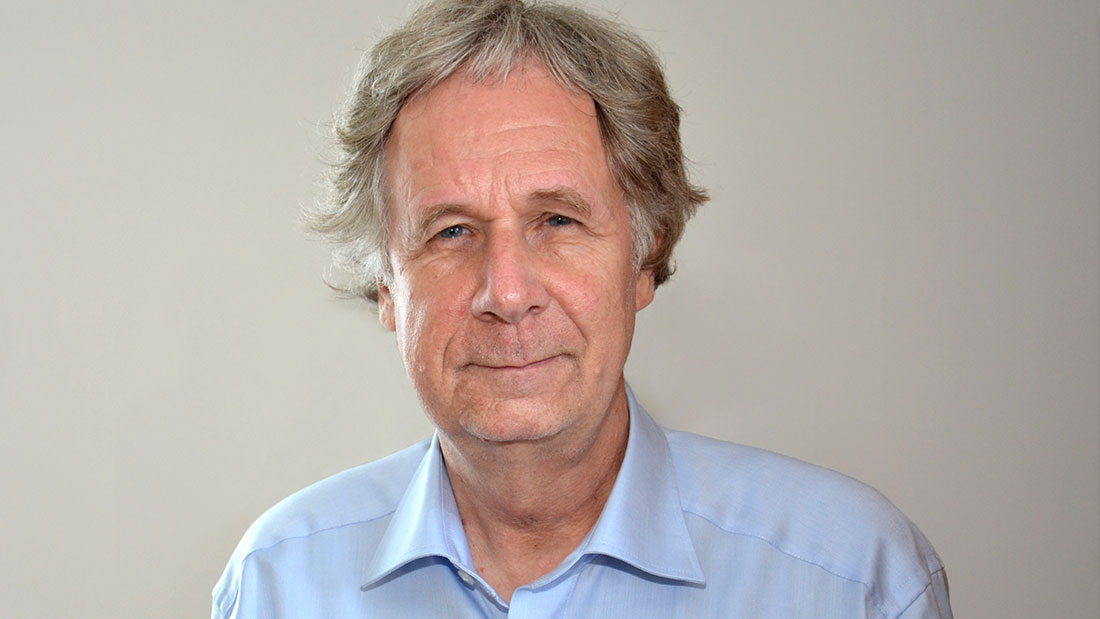Old is the new young: Aging today opens new vistas, new opportunities
Interview with geriatric researcher François Höpflinger
Old age today is no longer a stigma, but a period of life that spans several decades and phases. In this Vontobel interview, sociologist François Höpflinger outlines the new living concepts that fresh retirees are discovering for themselves – and how people change their identity after retirement.

François Höpflinger continues to advise and research topics such as the evolution of the family, intergenerational relationships, and working and living in old age.
They’re counting opportunities, not years: Starting at the age of 65, many fresh retirees embark on a life full of new freedoms and opportunities. Instead of "retiring", their program is about awakening. That’s because they don’t feel "old" in a single fiber of their being – and they also have the relevant financial resources to enjoy this leisure. The borderline when real "old age" begins has shifted a great deal upward. If you recognize this, you can discover promising investment opportunities associated with this generation of retirees.
Prof. Höpflinger, you are often quoted in the media as a "geriatric researcher". How would you judge your own age? Are you "old"?
(Laughs.) That depends entirely on your perspective. For example, I feel young enough to make myself available for interviews even though I’ve retired - like I’m doing just now. But to my four grandchildren, of course, I’m their grandpa – and therefore I’m "old".
In general, are "old" people younger today than they used to be?
Yes and no. From a demographic point of view, the elderly today are much older than 20 years ago. But at the present time, the border has shifted that demarcates when we experience – and live – old age. People don’t really feel old as long as they still have opportunities for personal development. Add to this the fact that people don’t simply accept becoming old, but rather try to stretch out the transition. This helps explains why anti-aging products have become an important growth market.
So today, at what age do you become old in the classical sense?
A survey of people aged 50 and older revealed that the age above 80 is perceived as old. Scientifically, however, we distinguish today between the third stage of life, the so-called "young old", and the fourth stage, the "old old". This distinction makes it clear that the two groups are at completely different stations in their lives. Upon retirement, the young old begin a period full of new freedoms and opportunities. In German, we call these people "Silver Agers". On the other hand, the demarcation of very old people is defined as the point when they experience their first confrontations with limitations. They are perceived as people needing to be cared for, to be looked after.
Let's stick with these "Silver Agers" for a moment. In a certain manner of speaking, are they able to "have their cake and eat it, too"? In other words, have they got both money and time - and on top of that, have still remained youthful and fresh?
In actual fact, "retirement" is changing substantially. The word itself hints at a "withdrawal" from activities, whereas these days it is anything but. Compared to their parents, the "Silver Agers" are more used to living in a mobile and constantly changing global society. As a result, they often remain innovative and willing to learn new things even later in life. Also, they’re more demanding and choosier about their requirements when it comes to how they live and what they buy.
"Active retirement" sounds more like stress than happiness…
On the contrary. In Switzerland, 65-74 year-olds are the cohort that is most satisfied with life. One reason for this is that after retirement, many stress factors associated with their jobs disappear. This creates the time and leisure for new things: What do I want to achieve now? What fulfills me? What role shall I play in society?
So in a way, we are reinventing ourselves in old age?
On a personal level, people’s identities often change – for example, because we suddenly become grandparents, start doing volunteer work, take up a hobby, embark on that round-the-world trip we never had time for, or in some other fashion we find a new meaning in life. By contrast, studies show that our basic personality traits change little as we get older. People who used to be interested in new things usually remain open to new things, for their whole lives. Introverted people remain introverted; passive people don’t become athletes, and so on. Only after the age of 90 do you see profound changes, as the focus of very old people gradually shifts to the past, because their short-term memory is diminishing while their long-term memory, still intact, is flushing out memories of long-ago times.
What role do work and self-fulfillment play in old age?
The proportion of women and men who continue to work after the age of 65, in any fashion at all, has been rising for several years, and in fact the acute skills shortage in many industries is going to intensify this trend. In most cases, what keeps retirees working is the fact that they enjoy it, but in other cases it is necessary for them to keep going because, for example, the payments they receive from their pension funds are insufficient. Working in old age can be combined with your desires for self-fulfillment, for example by working part-time, or as a freelance consultant offering your specific expertise.
Wouldn’t this lead to a competitive situation with younger generations?
Two changes are emerging: First, older professionals will become more valuable. It seems ideal to me if older specialists are deployed flexibly in their retirement years – for example, they might be on call, or step in when someone is on vacation. Younger employees enjoy greater job security this way. Second, non-linear careers are becoming more common. This means that older people give up specific responsibilities early, but they remain available. In this sense, they switch from a management function to a specialist function and free up the career ladder for younger successors.
But doesn’t that mean that valuable experiences would be lost, little by little?
That depends a lot on the industry. Transmitting professional experience to younger employees is really only an issue in mainly tradition-oriented industries. In innovation-oriented occupational fields, on the other hand, it is more important to be open to new ideas, gain further education, and work well with younger employees, especially women. Then, a good mix of generations can increase productivity and job performance – always provided that good working conditions prevail within the company.
People who work longer usually open up new financial opportunities for themselves as well. How are the "Silver Agers" set financially?
International travel and wellness offers are very successful with financially secured "Silver Agers". Sporting and cultural activities are also increasingly taken advantage of by older people, as are e-banking and e-commerce, as the majority of older people today are digitally well-connected. Not infrequently, after their children leave home, "Silver Agers" redo their house. Looking at Switzerland as a whole, the majority of retired women and men today own their own homes, and just over one fifth have a second home after retirement, for example at a holiday destination. Often, today's "Silver Agers" are not only gilding their own old age, but as grandparents, they are very generous to their grandchildren as well. As a result, the toy industry is increasingly promoting to these older buyers.
About François Höpflinger
François Höpflinger is a professor emeritus of sociology and an honorary member of the Swiss Society of Gerontology. Until 2008 he headed the university institute INAG, "Old Age and Generations", in Sion. Before that, from 1991 to 1998 he headed the "Old Age" research program of the Swiss National Science Foundation. Since 2009, Prof. Höpflinger has been independently researching topics such as the evolution of the family, living in old age, intergenerational relationships, the structural change of old age, and work in later years of employment.
Vontobel's thematic investments
Our thematic investments combine Vontobel's know-how in selected investment strategies, such as that associated with the topic of demography.
Who are we? What makes us matter? The question of our identity moves society; art, science, politics and every one of us seek answers. This interview with Prof. em. François Höpflinger is one of numerous contributions that illuminate the topic of identity from a new, inspiring perspective. We are publishing them here as part of our series "Impact".






